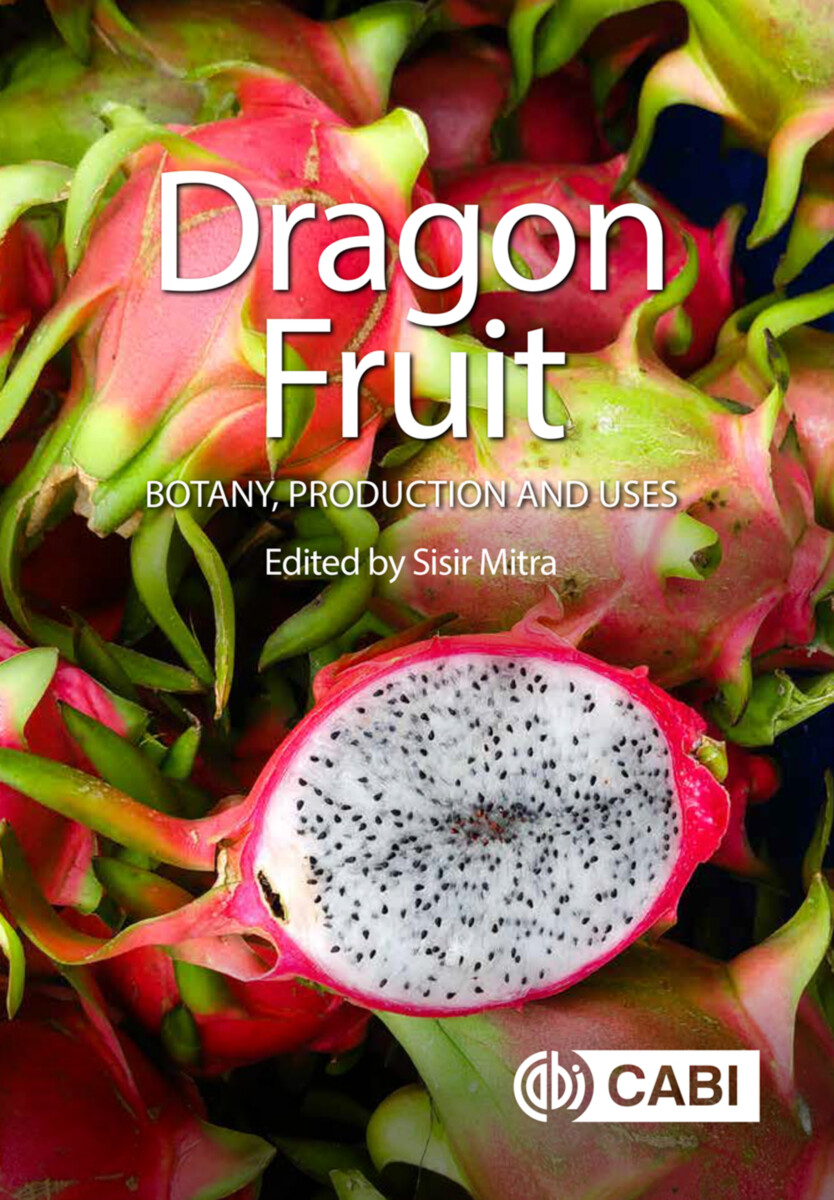- Publisher
CABI - Published
13th May 2024 - ISBN 9781800623132
- Language English
- Pages 264 pp.
- Size 6" x 9"
Dragon fruit (pitaya) is a perennial climbing cactus, native to the tropical areas of North, Central and South America. It is suited to tropical and subtropical regions and is commercially grown in an increasing number of countries, including Israel, Australia, and the USA. Dragon fruit generates considerable consumer interest because of its exotic appearance and potential health benefits.
The fruit is rich in nutrients and phytochemical compounds. It can be eaten fresh or used in the preparation of juices, jellies, jams, etc. The natural bioactive compounds in pitaya have the potential to be exploited in food, pharmaceutical and cosmetic industries. Increasingly cultivated worldwide, the plant is drought-resistant, easily adapts to light intensity and high temperatures, and has a tolerance to a wide range of soil salinities. With ongoing global warming, dragon fruit has great potential as a new crop for many more countries. This book is a compilation of the current state of knowledge on dragon fruit physiology, cultivation, production technology, postharvest management and processing, and is written by leading international authors.
1. Selenicereus (A.Berger) Britt. & Rose (Cactaceae) (incl. Hylocereus (A.Berger) Britt. & Rose). Nigel P. Taylor
2. Origin, Production and History. Sisir Mitra and Pradyot K Pathak
3. Composition and uses. Kundan Kishore and Ankita Sahu
4. Processing and Products. Prinya Wongsa and Sisir Mitra
5. Breeding and varieties. Sisir Mitra
6. Biotechnology. Leila Aparecida Salles Pio and Renato Paiva
7. Propagation. Taner Bozkurt and Özhan Simsek
8. Orchard Management. Mai Van Tri, Dinh Thi Yen Phuong and Sisir Mitra
9. Flowering, Fruit set and Fruit Development. Joanna Cho Lee, Ying and Phebe Ding
10. Pests and nematodes. Long Haibo, Tang Liangde and Li Huadong
11. Diseases. Mai Van Tri and Dinh Thi Yen Phuong
12. Greenhouse Cultivation. Hamide Gubbuk, Recep Balkic, and Lokman Altinkaya
13. Postharvest Management. Sisir Mitra
Sisir Mitra
Sisir Mitra worked at the Bidhan Chandra Krishi Viswavidyalaya, Mohanpur, West Bengal, India from 1980 until 2014. He served as Head, Department of Fruits and Orchard Management (1996-2000), Dean, Faculty of Horticulture (2007-2009) and Dean, Post Graduate Studies (2009-2012). Dr. Mitra did his post doctoral research (1985-1986) at the Horticulture Research International, East Malling, UK as Commonwealth Fellow and worked as visiting Professor at the Institute Coltivazoni Arboree, Italy (1990), and University of Lavras, Brazil (2016). He has published 252 scientific papers, 74 popular articles, 11 books, 1 IBPGR Descriptors and 28 technical reports. He has developed one coconut variety (Kalpa Mitra), two mango (Himsagar-HT 10 and Langra-LT 64 ) and three Jackfruit ( Jt-1, JT 39 and JT 40) clones. Dr. Mitra is presently serving as Board Member responsible for publications of ISHS, Science Editor, ISHS and Editor-in-Chief, Fruits: The International Journal of Tropical and Subtropical Horticulture. He is also the Chairman, Editorial Advisory Board of Acta Horticulturae and Chronica Horticulturae. He also serves as Chairman, Working Group on Avocado, and Jackfruit and other Moraceae. Previously he was Chairman, Tropical and Subtropical Fruits.


